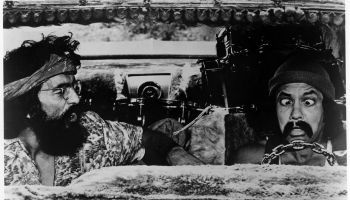
Source: Taylor Hill / Getty
The official first look at the profoundly emotional and cinematic film Till is out now. Till is based on the true story of Mamie Till Mobley’s relentless pursuit of justice for her son, Emmett Till. Read director Chinonye Chukwu’s words about the film and watch the first look at Till inside.
Chukwu’s intended to depict this heart-wrenching story from a different perspective. With a story so filled with trauma, she makes sure to reinforce that Till will begin and end with joy. Chukwu also says that there will be no Black violence shown as that is not of interest to her when telling this profound story.
Till is written by Michael Reilly, Keith Beauchamp and Chinonye Chukwu about Mobley’s unyielding road to justice for her 14 year old son, Till, who, in 1955, was lynched while visiting his cousins in Mississippi. In Mamie’s poignant journey of grief turned to action, we see the universal power of a mother’s ability to change the world.
Read a statement from Director, Chinonye Chukwu below:
When I was approached to write and direct a story about Emmett Till, I found myself drawn to a singular figure at the center of his orbit. I saw an opportunity to subvert expectations and approach the narrative through another lens – from the maternal point of view of Mamie Till Mobley. Had it not been for Mamie, her son’s memory would have evaporated into thin air. She was the catalyst for a modern day civil rights movement that has laid a formidable framework for future activists and Freedom Fighters. I felt compelled to champion Mamie’s legacy and center her in the spotlight where she rightfully belongs.
Mamie’s untold story is one of resilience and courage in the face of adversity and unspeakable devastation. For me, the opportunity to focus the film on Mamie, a multi-faceted Black woman, and peel back the layers on this particular chapter in her life, was a tall order I accepted with deep respect and responsibility. On the daily, Mamie combatted racism, sexism, and misogyny, which was exponentially heightened in the wake of Emmett’s murder. Mamie did not cower. Instead, she evolved into a warrior for justice who helped me to understand and shape my own similar journey in activism. And as a filmmaker, showing Mamie in all her complex humanity was of utmost importance.
The crux of this story is not about the traumatic, physical violence inflicted upon Emmett – which is why I refused to depict such brutality in the film – but it is about Mamie’s remarkable journey in the aftermath. She is grounded by the love for her child, for at its core, TILL is a love story. Amidst the inherent pain and heartbreak, it was critical for me to ground their affection throughout the film. The cinematic language and tone of TILL was deeply rooted in the balance between loss in the absence of love; the inconsolable grief in the absence of joy; and the embrace of Black life alongside the heart wrenching loss of a child.
I hope viewers will empathize with the humanities on screen and see our present cultural and political realities within this film. And I hope that Mamie’s story helps us all to realize the power within ourselves to continue to fight for the change we want to see in the world, just as she did.
Check out the first look, which features the cast and crew behind the upcoming film:
Till will debut in theaters next month.
















